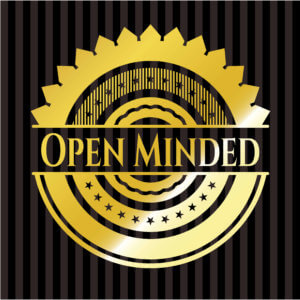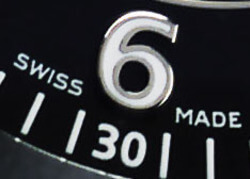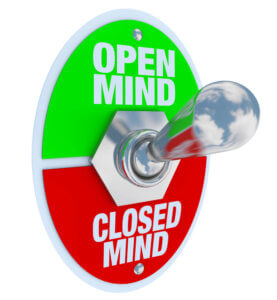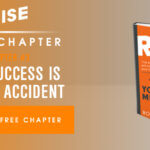Do you have an open or a closed mindset?
Why is it that some people seem to make constant progress in their professional and personal lives, while others appear to continually repeat the same mistakes over and over remaining in the same spot?
Whilst the answer isn’t cut and dry, over the years I’ve worked with tens of thousands of people from all walks of life and I’ve noticed an interesting mindset difference between these two groups of people.
Put simply, they approach obstacles, challenges and opportunities very differently.
And it comes down to this.
The rate at which you learn and progress in the world depends on how willing you are to weigh the merit of new ideas or new horizons, even if you don’t instinctively like them.
You see, the first group approaches life with an open mind. An eagerness to learn and a willingness to be wrong.
The second group digs their heels in at the first sign of disagreement or discomfort and would rather walk away than be wrong or uncomfortable. (Check out my blog on stepping out of your comfort zone)
Do you have an open or closed mindset?
Now, before you slap an ‘I’m open-minded’ sticker on your chest, consider this: closed-minded people would never consider they could actually be closed-minded.

Who actually wants to admit they’re closed-minded?!?
But having the ability to change your mind is a superpower, especially if deep down you don’t want to.
But are you the real deal, or have you simply learned to talk the talk and look the part?
At the heart of the closed vs. open mindset is the whole notion of a paradigm.
paradigm /ˈparədʌɪm/ noun
- a typical example or pattern of something; a pattern or model.
Paradigms can work for you because you have a pattern, a model, a formula to follow which has proved successful to you in the past, so why change?
But they can also work against you!
Sometimes we can get stuck in a pattern of thinking, a mindset which can be limiting, or even de-railing. Following this same pattern closes our mind to the sense of possibilities around us meaning we can miss positive and beneficial change without even realising it.
Here’s an example about the Swiss watch industry to demonstrate my point…

In 1968, the Swiss made 65% of all watch sales worldwide and laid claim to as much as 90% of the profits.
They were renown for making the best watches in the world and were committed to constant refinement of their expertise.
It was the Swiss who came forward with the idea of the minute hand and the second hand and led the way in discovering better ways to manufacture the gears, bearings, and mainsprings of watches in addition to waterproofing techniques and self-winding models.
But by 1981, some thirteen years later, they had laid off thousands of watchmakers, controlled less than10% of the world market share and their profit domination dropped to less than 20%.
Between 1979 and 1981 alone, fifty thousand of the sixty-two thousand Swiss watchmakers had lost their job.
Why?
Because, despite all their product development ‘firsts’, the Swiss refused to consider a new development, the Quartz movement, which ironically was invented by a Swiss.
Because the Quartz movement had no mainspring or knob, it was rejected. It was too much of a paradigm shift for them to embrace. Seiko, on the other hand, accepted it and revolutionized the watch industry as it became the new market leader.
Did you know Blockbuster were approached to buy Netflix four times. FOUR TIMES. In 2017, Netflix was the worlds 10th largest internet company by revenue ($11.7bn) and 7 years prior in 2010, Blockbuster filed for bankruptcy protection.
Talk about a paradigm shift.
So why am I sharing these examples with you?
Because the Swiss watch industry experts or the Blockbuster Board of Directors would not have considered themselves closed minded. Actually quite the opposite.
Only when you are conscious and deliberate in your thinking and subsequent thoughts and actions are you open to the sense of opportunities that are around you.

You start to hunt them out and by no surprise they hunt you out too.
If you’ve been following my work for a while you will know that one of my guiding principles in life is that we should all live with conscious and deliberate intent. We should become the architect of our own destiny rather than the bystander to someone else’s. No autopilot or sleep walking through life. It is simply too short!
So next time you dismiss or turn down a new opportunity or new idea, just open your mind for a second to the possibility that this could be a new beginning. It might not be, but at least you’ve had an open mind to it.


